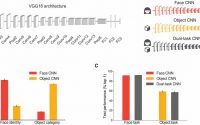Covid Immunity Through Infection or Vaccination: Are They Equal?
Dr. Aaron Kheriaty, a University of California-Irvine psychiatry professor, felt he didn’t need to be vaccinated against covid because he’d fallen ill with the disease in July 2020.
So, in August, he sued to stop the university system’s vaccination mandate, saying “natural” immunity had given him and millions of others better protection than any vaccine could.
A judge on Sept. 28 dismissed Kheriaty’s request for an injunction against the university over its mandate, which took effect Sept. 3. While Kheriaty intends to pursue the case further, legal experts doubt that his and similar lawsuits filed around the country will ultimately succeed.
That said, evidence is growing that contracting SARS-CoV-2, the virus that causes covid-19, is generally as effective as vaccination at stimulating your immune system to prevent the disease. Yet federal officials have been reluctant to recognize any equivalency, citing the wide variation in covid patients’ immune response to infection.
Like many disputes during the covid pandemic, the uncertain value of a prior infection has prompted legal challenges, marketing offers and political grandstanding, even as scientists quietly work in the background to sort out the facts.
For decades, doctors have used blood tests to determine whether people are protected against infectious diseases. Pregnant mothers are tested for antibodies to rubella to help ensure their fetuses won’t be infected with the rubella virus, which causes devastating birth defects. Hospital workers are screened for measles and chickenpox antibodies to prevent the spread of those diseases. But immunity to covid seems trickier to discern than those diseases.
The Food and Drug Administration has authorized the use of covid antibody tests, which can cost about $70, to detect a past infection. Some tests can distinguish whether the antibodies came from an infection or a vaccine. But neither the FDA nor the Centers for Disease Control and Prevention recommend using the tests to assess whether you’re, in fact, immune to covid. For that, the tests are essentially useless because there’s no agreement on the amount or types of antibodies that would signal protection from the disease.
“We don’t yet have full understanding of what the presence of antibodies tells us about immunity,” said Kelly Wroblewski, director of infectious diseases at the Association of Public Health Laboratories.
By the same token, experts disagree on how much protection an infection delivers.
Email Sign-Up
Subscribe to KHN's free Morning Briefing.
In the absence of certainty and as vaccination mandates are levied across the country, lawsuits seek to press the issue. Individuals who claim that vaccination mandates violate their civil liberties argue that infection-acquired immunity protects them. In Los Angeles, six police officers have sued the city, claiming they have natural immunity. In August, law professor Todd Zywicki alleged that George Mason University’s vaccine mandate violated his constitutional rights given he has natural immunity. He cited a number of antibody tests and an immunologist’s medical opinion that it was “medically unnecessary” for him to be vaccinated. Zywicki dropped the lawsuit after the university granted him a medical exemption, which it claims was unrelated to the suit.
Republican legislators have joined the crusade. The GOP Doctors Caucus, which consists of Republican physicians in Congress, has urged people leery of vaccination to instead seek an antibody test, contradicting CDC and FDA recommendations. In Kentucky, the state Senate passed a resolution granting equal immunity status to those who show proof of vaccination or a positive antibody test.
Hospitals were among the first institutions to impose vaccine mandates on their front-line workers because of the danger of them spreading the disease to vulnerable patients. Few have offered exemptions from vaccination to those previously infected. But there are exceptions.
Two Pennsylvania hospital systems allow clinical staff members to defer vaccination for a year after testing positive for covid. Another, in Michigan, allows employees to opt out of vaccination if they present evidence of previous infection and a positive antibody test in the previous three months. In these cases, the systems indicated they were keen to avoid staffing shortages that could result from the departure of vaccine-shunning nurses.
For Kheriaty, the question is simple. “The research on natural immunity is quite definitive now,” he told KHN. “It’s better than immunity conferred by vaccines.” But such categorical statements are clearly not shared by most in the scientific community.
Dr. Arthur Reingold, an epidemiologist at UC-Berkeley, and Shane Crotty, a virologist at the respected La Jolla Institute for Immunology in San Diego, gave expert witness testimony in Kheriaty’s lawsuit, saying the extent of immunity from reinfection, especially against newer variants of covid, is unknown. They noted that vaccination gives a huge immunity boost to people who’ve been ill previously.
Yet not all of those pushing for recognition of past infection are vaccine critics or torchbearers of the anti-vaccine movement.
Dr. Jeffrey Klausner, clinical professor of population and public health sciences at the University of Southern California, co-authored an analysis published last week that showed infection generally protects for 10 months or more. “From the public health perspective, denying jobs and access and travel to people who have recovered from infection doesn’t make sense,” he said.
In his testimony against Kheriaty’s case for “natural” immunity to covid, Crotty cited studies of the massive covid outbreak that swept through Manaus, Brazil, early this year that involved the gamma variant of the virus. One of the studies estimated, based on tests of blood donations, that three-quarters of the city’s population had already been infected before gamma’s arrival. That suggested that previous infection might not protect against new variants. But Klausner and others suspect the rate of prior infection presented in the study was a gross overestimate.
A large August study from Israel, which showed better protection from infection than from vaccination, may help turn the tide toward acceptance of prior infection, Klausner said. “Everyone is just waiting for Fauci to say, ‘Prior infection provides protection,’” he said.
When Dr. Anthony Fauci, the top federal expert on infectious diseases, was asked during a CNN interview last month whether infected people were as well protected as those who’ve been vaccinated, he hedged. “There could be an argument” that they are, he said. Fauci did not immediately respond to a KHN request for further comment.
CDC spokesperson Kristen Nordlund said in an email that “current evidence” shows wide variation in antibody responses after covid infection. “We hope to have some additional information on the protectiveness of vaccine immunity compared to natural immunity in the coming weeks.”
A “monumental effort” is underway to determine what level of antibodies is protective, said Dr. Robert Seder, chief of the cellular immunology section at the National Institute of Allergy and Infectious Diseases. Recent studies have taken a stab at a number.
Antibody tests will never provide a yes-or-no answer on covid protection, said Dr. George Siber, a vaccine industry consultant and co-author of one of the papers. “But there are people who are not going to be immunized. Trying to predict who is at low risk is a worthy undertaking.”
This story was produced by KHN, which publishes California Healthline, an editorially independent service of the California Health Care Foundation.
Source: Read Full Article


